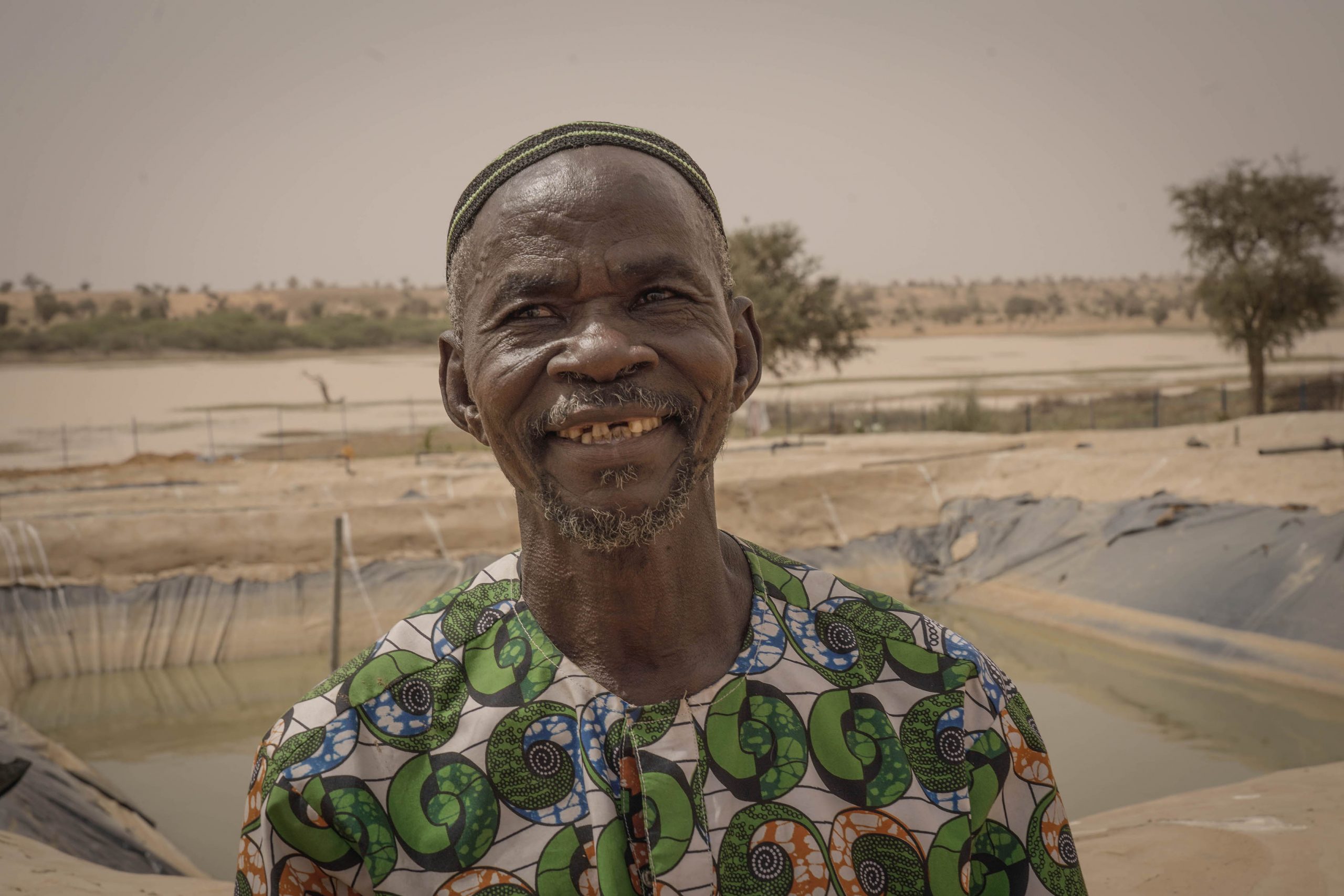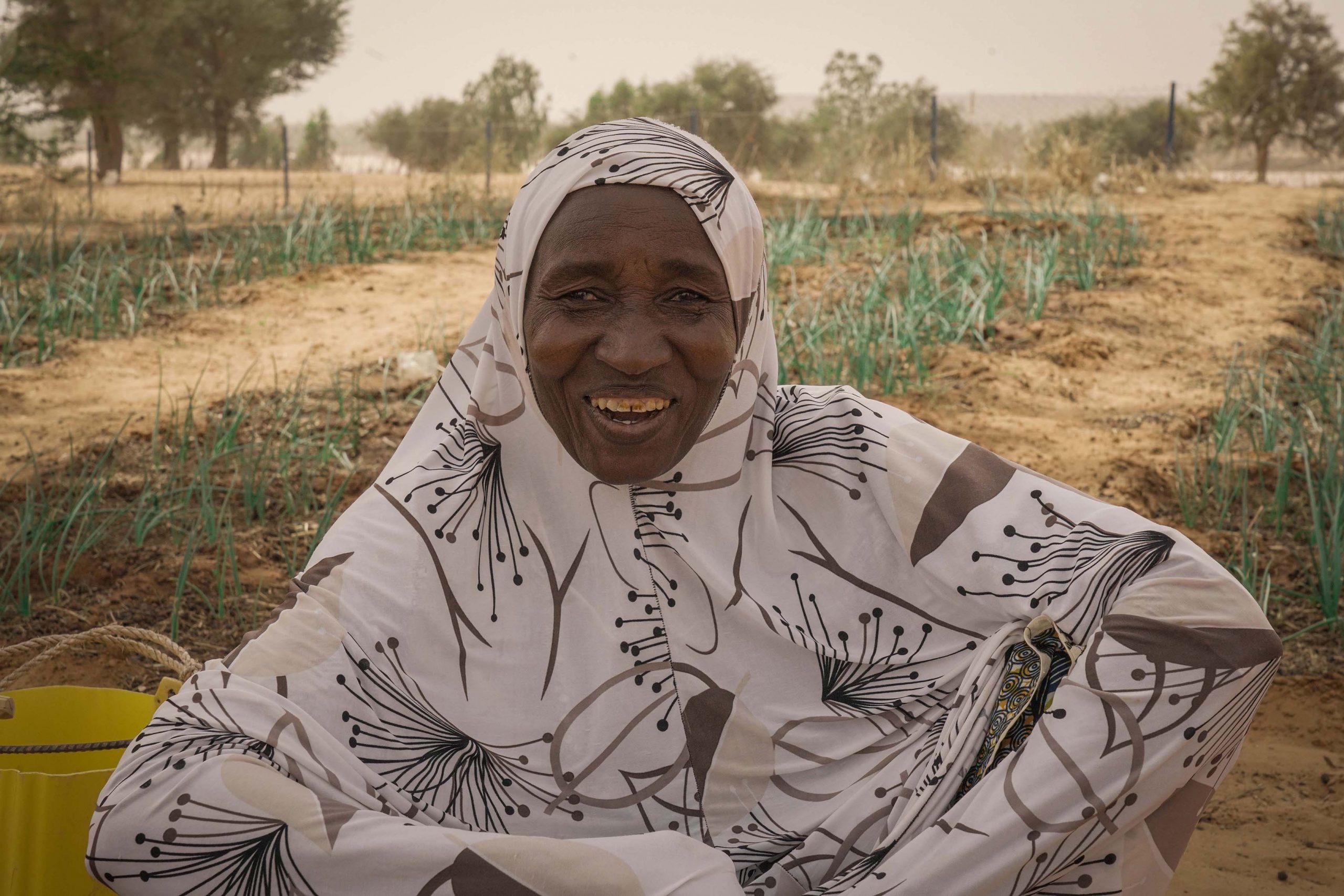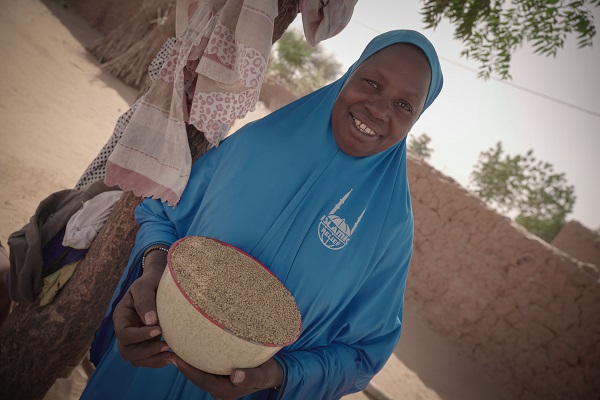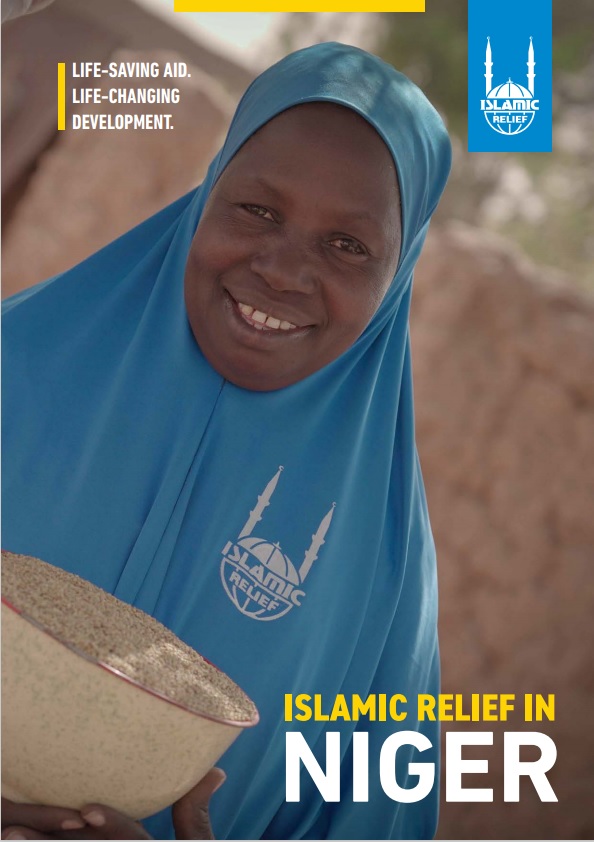Niger faces some major and chronic humanitarian challenges. Islamic Relief has been working in the west African country since 2005, helping vulnerable families, delivering life-saving humanitarian aid and supporting communities to increase resilience. So far, we have helped over 2.97 million people in Niger, and our new publication details our transformative work.
Deepening humanitarian needs in Niger
Niger is one of the poorest counties in the world, with 40% of its population – over 9.5 million people – living in extreme poverty. Conflict and insecurity are deepening suffering and the effects of climate change are leaving the poorest struggling to earn a living and to feed their families.
Our work in Niger includes emergency relief, water, sanitation and hygiene, food security and livelihoods, empowering women, tackling malnutrition, and seasonal food distributions. Since 2005, we have delivered 139 projects.
Tackling malnutrition
Malnutrition threatens many children in Niger, with UNICEF estimating that 15% of children are acutely malnourished. Islamic Relief has established therapeutic and supplementary feeding centres which provide life-saving care for malnourished children and women.
“The clinic has alleviated cases of malnutrition in this area,” says Moussa Saidou Agali, Belayara District Secretary General. As well as therapeutic feeding, it provides medical treatment for children with acute malnutrition or diseases caused by the condition.

“I did not know that my child was malnourished,” says Fati, 30. “I was told my child is very sick and needs to be admitted to the [district] hospital.”
Her 20-month old daughter, Raudo, received lifesaving care and Fati learned to recognise and prevent malnutrition and practise good hygiene.
Lifting families out of poverty
Islamic Relief helps families to build reliable livelihoods, despite the challenges of the changing climate. We also provide seasonal food distribution programmes targeting the poorest households. Through our sustainable livelihood projects, over 18,000 families have escaped hunger.
The United Nations estimates that 1.9 million people in Niger do not know where their next meal is coming from, so our food and nutrition projects are a lifeline for many.

“Our interventions are supporting these amazing communities to become more resilient. We are helping them to earn a reliable living, ending worries about where their next meal will come from” says Hadiza Boukar, our Food Security and Livelihoods Coordinator in Niger.
We have been able to help people like Idrissa from the Tinga Valley, who says that Islamic Relief helped him earn a reliable living. “Before when we were fishing on the river, sometimes we used to catch nothing… we are now able to control production.”
We also gave local families access to land irrigated through water-conserving technology. Among those to benefit is Asma, who has struggled to provide for her family since her husband passed away 15 years ago.
Helping Asma and other local women to set up and manage a cooperative, we also trained them to produce profitable crops all year round. Now, she earns her living as a farmer – and with Islamic Relief’s help she is maximising her profits.

Empowering women to unlock their potential
Niger has the world’s highest rate of child marriage, according to the World Bank, with most girls married before their 18th birthday. Women are much more likely to live in poverty than men.
Islamic Relief is helping enterprising women’s groups in Tagazar and Tondikandia communes to change that. Rabi Abdou leads one such collective of 25 members: the Soudji Ma Zoumboua Zagagadan women’s group.
“Each one of us had a problem and we decided to come together to see how we can solve our problems,” says the mother-of-ten.

Each member is engaged in small businesses such as fattening animals, knitting, making bed sheets and selling cereals. Such enterprises are their main source of income. Islamic Relief has worked with the group to create a business plan to maximise profitability.
With our support women are lifting themselves out of poverty and working together to improve their lives and future prospects. They are also ensuring their voices are heard within their communities and beyond.

Covid-19 is worsening suffering in Niger, with the full impacts of the crisis still unfolding. Islamic Relief has been a lifeline for many during the pandemic, and will continue doing all we can to save and change lives in the west African country.
Read ‘Islamic Relief in Niger’ today to learn more, and donate now to help us continue supporting those in need in Niger and around the world.










